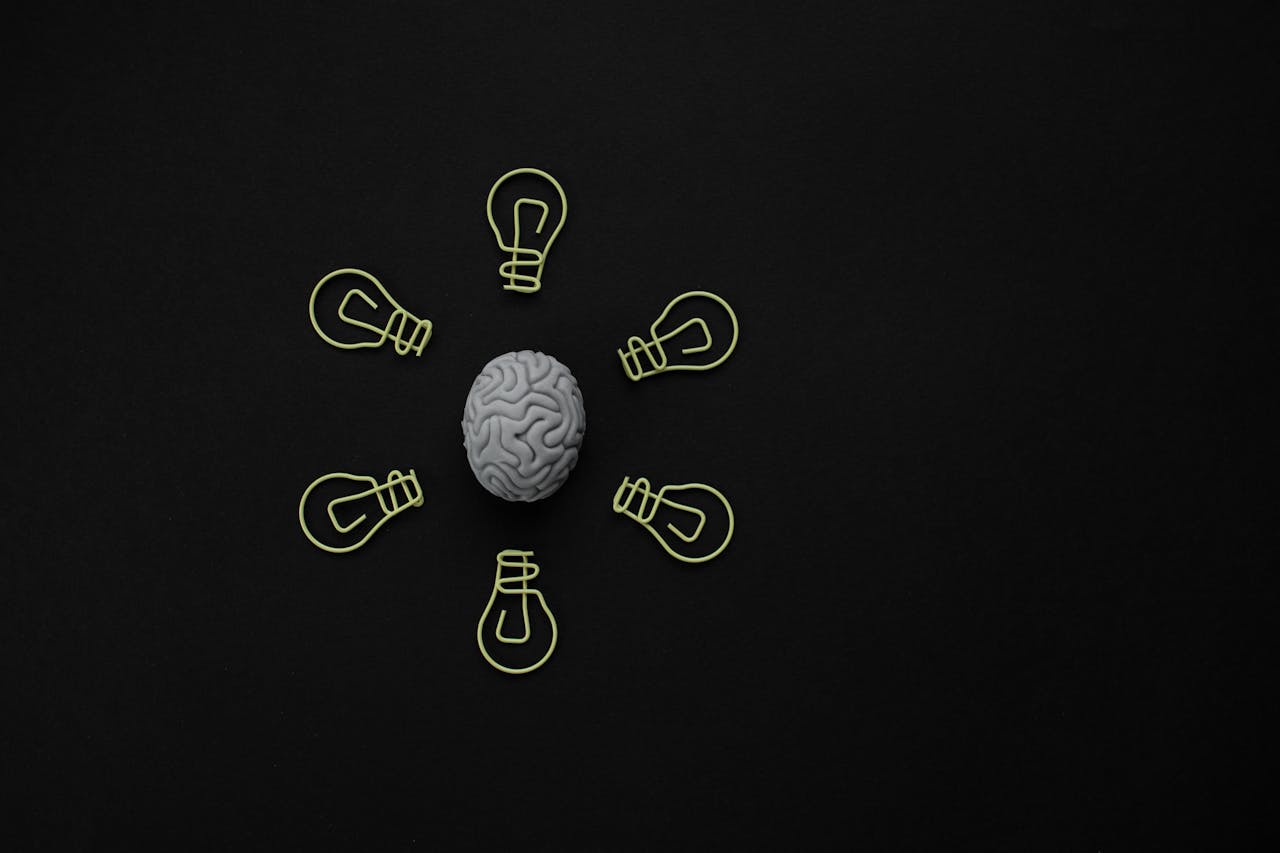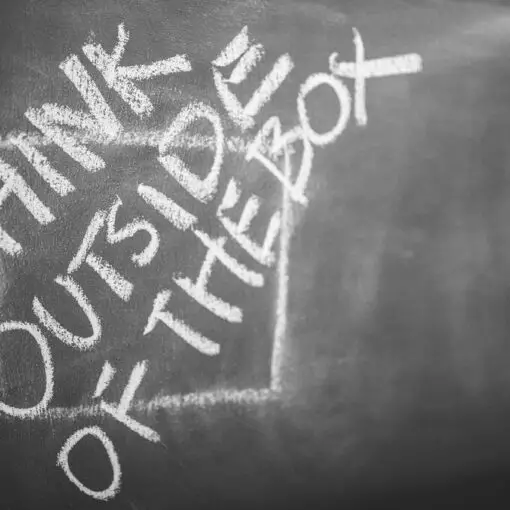Enhancing mental strength and agility is essential for personal growth. Thought-provoking questions can be a powerful tool in this process. They invite introspection and reflection, often leading to breakthroughs in understanding one’s motivations and beliefs.

Thought-provoking questions can ignite curiosity and lead to deeper insights that spur personal development.
For those seeking a mental challenge, exploring these questions sharpens critical thinking skills. They push individuals beyond surface-level thinking, encouraging a more nuanced exploration of ideas.
This intellectual exercise is not just stimulating but also rewarding, allowing for new perspectives and sharper decision-making skills.
The practice of pondering such questions also opens doors to creativity and innovative thinking. By regularly engaging with complex questions, individuals train their minds to approach problems with a fresh outlook.
This not only benefits personal development but also enhances everyday interactions and decision-making processes.
Exploring the Concept of Self

Exploring the concept of self involves understanding how personal thoughts and actions shape identity and behavior. It also delves into how creativity and happiness contribute to a fulfilling life, while freedom and expectations affect personal growth.
Understanding Your Thoughts and Actions
Understanding personal thoughts and actions is key to self-awareness. Thoughts influence feelings, which can drive behavior.
By becoming aware of these patterns, a person can make conscious decisions rather than reacting automatically. Observing one’s thoughts allows identification of negative patterns that might limit growth.
Actions speak louder than words. They reveal true priorities, beliefs, and motivations. Reflecting on past actions can help an individual understand what they value most in life. Verbal reflection can be a powerful tool for this process.
The Role of Creativity and Happiness
Creativity is not just about art or music—it involves thinking outside the box and finding new solutions to problems. Engaging in creative tasks can lead to significant joy and personal fulfillment.
It encourages open-mindedness and flexibility, allowing individuals to see opportunities where others see obstacles.
Happiness is deeply connected with creativity. When people are happy, they tend to be more creative, which in turn can boost happiness even further.
Incorporating creative activities into daily life can lead to a more satisfying and joyful experience.
Freedom and Expectations in Personal Growth
Freedom allows individuals to pursue their goals without undue influence from external pressures. It is essential for authentic personal growth as it enables people to follow their passions and interests.
Freedom means having the space to try new things, learn from mistakes, and make choices that align with one’s true self.
Expectations, both internal and external, can limit growth. Balancing these with freedom is crucial.
While expectations can motivate, they should not overshadow personal desires or needs.
Allowing oneself the liberty to set and pursue personal goals, free from rigid expectations, fosters genuine progress. Balancing freedom and expectations encourages a fulfilling and evolving personal journey.
Societal Dynamics and Interpersonal Relationships
Societal interactions shape human connections and define the way civilizations evolve. The influence of the internet transforms relationships, while the true nature of human connections is often questioned and explored.
Humanity and Civilization
Humanity thrives when people engage with one another. Civilizations have grown through shared knowledge and cultural exchange.
Throughout history, relationships have been crucial for survival and development. People form communities, build structures, and create systems that define society.
Interpersonal connections influence governance, social norms, and cultural beliefs. These relationships shape economies, laws, and education.
It’s important to understand the role of cooperation and conflict in the rise and fall of civilizations.
Examining these factors reveals how humanity adapts to change and finds balance.
Impact of Internet and Social Media
The internet and social media have drastically altered how individuals interact. Platforms like Facebook and Twitter connect users worldwide, creating communities that transcend physical boundaries.
These tools foster the exchange of ideas, fostering learning and collaboration.
However, relationships online can differ from face-to-face interactions. Online communication often lacks the nuance of body language and tone, affecting understanding and empathy.
Social media can influence opinions, shape identity, and introduce new challenges in privacy and authenticity.
Users must navigate these complexities to maintain healthy and meaningful connections.
The Nature of Reality in Human Connections
The nature of relationships involves exploring truth and perception. People often question what’s real in social interactions.
This investigation into reality helps individuals form deeper connections. Trust, honesty, and empathy form the basis of meaningful relationships.
Technology challenges traditional concepts by blending virtual and real-world experiences.
Virtual reality and augmented reality impact how humans interact.
These technologies can create immersive experiences but may also blur the lines between fact and fiction.
People must consider the implications of these changes on their understanding of reality in relationships.
Contemplating the Wonders of the Cosmos
The cosmos presents mysteries that prompt us to question our place within it and the possibilities beyond what we can observe. The concepts of extraterrestrial life and the vastness of the universe challenge our minds and inspire curiosity.
Considering the Existence of Aliens and Parallel Universes
The universe is vast, holding billions of galaxies, each with countless stars and planets. This enormity leads many to ponder the existence of aliens.
If life developed on Earth, it seems possible it could exist elsewhere. Scientists search for signs of life on planets like Mars and moons such as Europa, aiming to answer this age-old question.
Parallel universes are another intriguing possibility. Theoretical physics suggests these alternate realities could exist alongside our own.
Each might have different laws of physics or histories.
This concept extends beyond science fiction, influencing theories about the universe’s structure.
Exploring these ideas helps expand our understanding beyond the observable universe, opening up new avenues for scientific inquiry.
The Universe and Its Relation to Us
The universe’s vastness makes the question of human existence significant. People wonder about their purpose within such an expansive cosmos.
Observing celestial bodies helps humans understand their place.
The interconnected nature of cosmic elements reveals the impact of stars and galaxies on our solar system and Earth.
Theories about the movement and behavior of celestial bodies inform this reflection.
For instance, the Big Bang Theory suggests that everything originated from a single point, aligning with scientific patterns we’ve observed.
This theory connects humanity to the cosmos by tracing cosmic creation back to a singular origin.
Such insights foster a deeper appreciation for the universe’s role in shaping life and existence.
Frequently Asked Questions
Exploring thought-provoking questions helps deepen understanding of personal experiences and connections with others. These questions explore major life choices, perceptions, connections, and more.
What is the most significant choice you’ve made in your life?
Significant choices often define a person’s path. Reflecting on these decisions can reveal core values and priorities. Each choice impacts future possibilities and developments.
How do your thoughts shape your perspective of the world?
Thoughts create a personal lens, influencing how situations and events are perceived.
Understanding this can help improve how challenges are approached and relationships are managed.
What can always bring a smile to your face, regardless of your mood?
Identifying simple joys can enhance well-being.
Knowing what brings happiness, even during tough times, can act as a powerful tool to boost mood and resilience.
In what ways do you think we are connected to each other?
Human connections go beyond physical interactions, involving shared experiences and emotions.
These connections foster understanding, empathy, and a sense of community.
What is one question you would ask to gain the deepest insight into someone?
A powerful question can uncover deep insights about a person’s beliefs and experiences. It’s about understanding what drives and motivates them.
How does silence speak differently than words?
Silence can convey emotions and thoughts without spoken language. It allows for reflection. Also, it can lead to a deeper comprehension of oneself and others.





